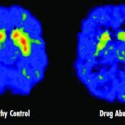Older and Wiser Doesn't Mean Knowing When to Stop Drinking
The old adage of “don’t do what I do, do what I say” may very well pertain to older adults when it comes to drinking. A small study of 42 adults, half between the ages of 40 and 75, and half aged 25 to 35, indicated that the older drinkers really may not know when to stop.
The participants were given alcoholic beverages or placebo drinks, equivalent to two glasses of wine. The older adults who consumed alcohol did not perform as well on tests as the younger group, and when asked to rate their impairment they did not think that they were as effected as observers did. According to Dr. Sara Jo Nixon, senior researcher on the study it may because social drinkers become inured to the effects of social drinking through the years. “It’s a subtle effect. It’s not one of those where you readily think, ‘Oh my God, I shouldn’t be driving.’”
Nixon, a professor of psychiatry at the University of Florida specializing in substance abuse, said that she and her colleagues wanted to study the affects of small amounts of alcohol that adults might consume at dinner or in social settings where drinking is not the focus of the event. The cocktails were tailored to the weight and gender of the subjects to achieve a blood alcohol content of .04%, half the legal driving limit in most states. Nixon found the results surprising, “We often want to say that if we are below a legal limit, there are no consequences. That just isn’t true.” The older adults in the study thought themselves marginally impaired but, on average, they were five seconds slower in completing motor skills tasks. Nixon agreed that doesn’t seem like much but it is a long time if you are moving your foot from the gas to the brakes.
The researchers followed the affects of intoxication, the ascending arm on the road to drunkenness, and the descending arm as the alcohol wears off. Usually on the ascending arm alcohol is a “social lubricant”, with a stimulating effect. On the down slope, the effects are more sedating. The subjects were tested twice, at 25 minutes and 75 minutes after they had been drinking. The two motor skills tasks used to measure actual impairment are a type of connect the dots, but more complicated.
Older adults believed they were less impaired than the 20 to 30 year olds soon after imbibing, however as the effects of the alcohol began to wear off they believed themselves to be more effected, however the tests at 75 minutes revealed that at that point the alcohol did not effect their performance and they were on par with the younger group. Older adults are more sensitive to the sedative effect.
The participants in the study were all screened for health problems; those with serious or chronic medical conditions were ruled out along with smokers, individuals with substance abuse problems and anyone extremely overweight. In both groups there were those who were taking over the counter or prescription medications for certain illnesses and were not eliminated because that situation would reflect the general population. The younger group was screened for those who were several years removed from the binge drinking culture of college and young adulthood.
Previous studies have suggested that it takes liquor longer to metabolize with increased age, longer to clear from the system and may alter the brain chemistry of older people. Nixon urges older people to pay better attention to their own social drinking habits. She said that one drink per hour is a safe bet on average for any age group, but it may be more important for older drinkers. Monitoring your drinking doesn’t make you old, just smart.
source: Health News
